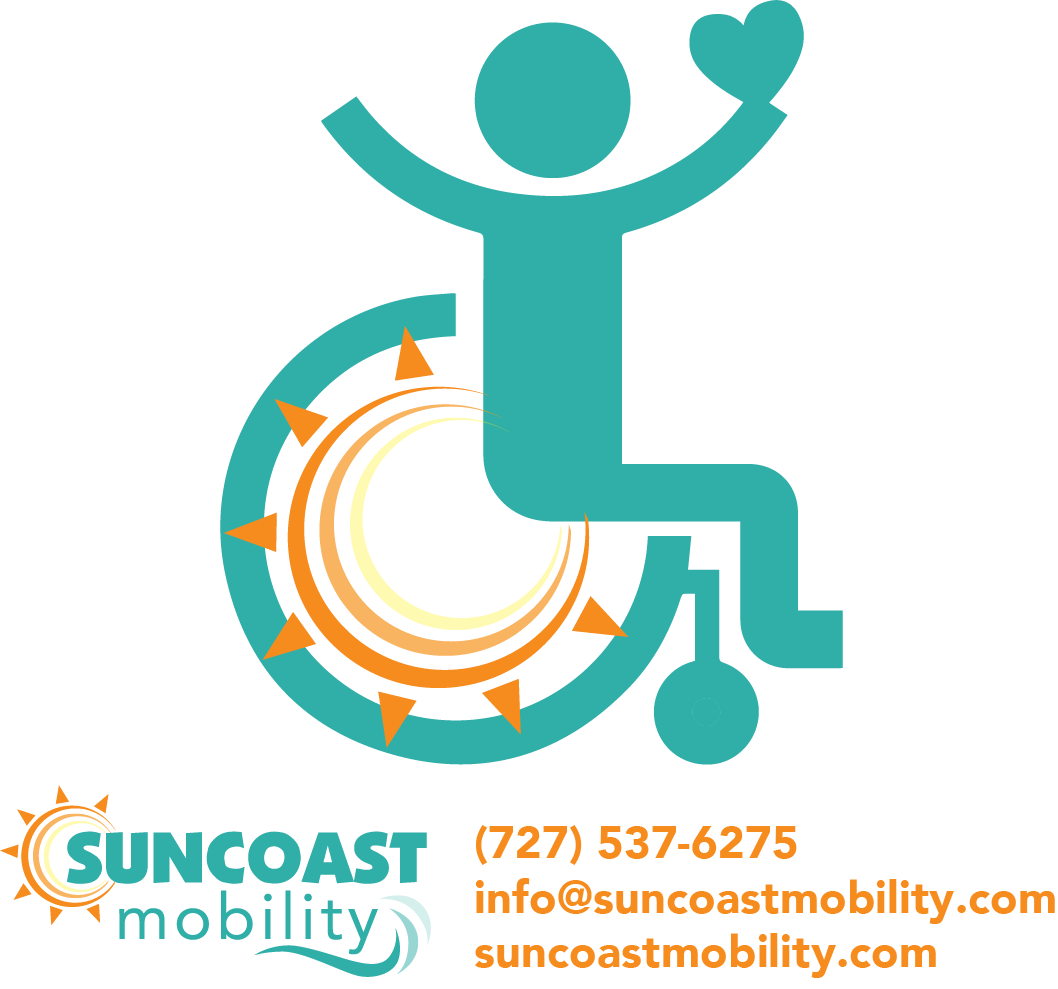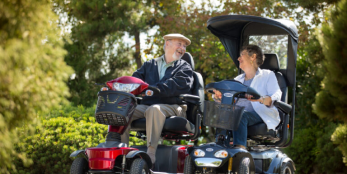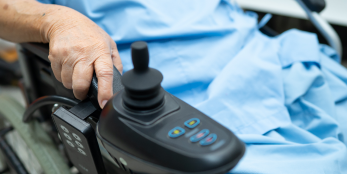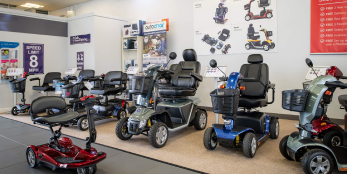Table of contents
Spirit Airlines Mobility Scooter Policy: Complete Guide
For travelers who rely on mobility scooters, flying can feel overwhelming without clear information on airline rules. Spirit Airlines, known for its low-cost fares and extensive U.S. and international routes, provides specific policies to ensure passengers with mobility needs can travel safely and comfortably. In this guide, we’ll cover everything you need to know about the Spirit Airlines Mobility Scooter Policy, including requirements, battery guidelines, check-in procedures, and tips for stress-free travel.

Why the Spirit Airlines Mobility Scooter Policy Matters
A mobility scooter isn’t just a convenience—it’s a lifeline for many passengers with limited mobility. Scooters allow travelers to move independently through airports, explore new destinations, and maintain their quality of life while away from home. However, because scooters involve batteries, size restrictions, and storage considerations, airlines like Spirit must set clear policies to balance safety with accessibility.
Understanding the Spirit Airlines Mobility Scooter Policy before you fly helps avoid unexpected challenges, ensures compliance with FAA safety standards, and makes your journey smoother.
Can You Bring a Mobility Scooter on Spirit Airlines?
Yes. Spirit Airlines allows passengers to travel with mobility scooters at no additional charge. The scooter is considered an assistive device, meaning it is not counted toward your standard baggage allowance. This ensures that travelers with disabilities are not penalized for bringing equipment necessary for mobility.
However, passengers must meet certain conditions for their scooter to be accepted:
The scooter must comply with size and weight limits set by Spirit.
Battery type and handling must follow FAA safety regulations.
Advance notice may be required if special arrangements are needed.
Spirit Airlines Battery Policy for Mobility Scooters
Batteries are one of the most important considerations under the Spirit Airlines Mobility Scooter Policy. Scooters may use different types of batteries, and each has unique handling requirements:
1. Sealed Lead-Acid (SLA) Batteries
-
Typically safe for air travel.
-
Can remain installed in the scooter during transport.
-
Terminals must be protected to prevent accidental short circuits.
2. Dry-Cell Batteries
-
Approved for air travel.
-
Like SLA batteries, they may remain installed if securely attached.
3. Lithium-Ion Batteries
-
These are more common in lightweight, folding scooters.
-
Subject to strict FAA limits (usually up to 300 watt-hours per battery).
-
If the battery is removable, it must be carried into the cabin as a personal item.
-
Spirit may require passengers to remove the battery before boarding.
Pro Tip: Check your scooter’s battery specifications before flying. If you’re unsure, contact Spirit’s accessibility desk in advance.
Size and Weight Limits
Like most airlines, Spirit imposes size and weight restrictions to ensure scooters can be safely stored in the aircraft cargo hold. While Spirit does not publicly list a universal weight limit, most mobility scooters up to 100 lbs can be accommodated. Larger heavy-duty scooters may require special handling.
To prevent surprises, measure your scooter and check the specifications in advance:
Height and Width: Scooters should fit through standard cargo doors (generally about 32 inches).
Weight: If your scooter is especially heavy, Spirit may request that the battery be removed to reduce total weight.
Check-In and Boarding with a Mobility Scooter
Spirit makes boarding easier for passengers traveling with scooters. Here’s what you can expect:
1. At Check-In
Arrive at least 2 hours before your flight to allow extra time for processing.
Inform the check-in agent that you are traveling with a mobility scooter.
Provide details about your scooter’s size, weight, and battery type.
2. At Security
-
TSA may inspect your scooter. If needed, they will provide alternative screening if you cannot walk through a scanner.
3. At the Gate
-
You can use your scooter all the way to the boarding gate.
-
At boarding, Spirit staff will tag your scooter for gate-check.
-
You may board early under priority boarding for passengers with disabilities.
4. During the Flight
-
Your scooter is stored in the cargo hold.
-
If your scooter has a removable lithium-ion battery, you’ll bring it into the cabin.
5. Arrival
-
After landing, your scooter is usually returned to you at the gate.
-
Spirit staff are available to assist if you need help transferring to your scooter.
Additional Accessibility Services
The Spirit Airlines Mobility Scooter Policy is just one part of the airline’s broader efforts to make air travel more accessible and comfortable for all passengers with disabilities or mobility limitations. Spirit recognizes that not every traveler relies solely on a scooter, and therefore provides a range of accessibility services designed to support passengers before, during, and after their flight.
Here are some of the key services offered:
Wheelchair assistance from check-in through boarding – Spirit provides full wheelchair service, including curbside or counter assistance, transport through security, and direct escort to your gate. Upon arrival, staff can also assist you from the plane to baggage claim or ground transportation. This ensures travelers with limited mobility never feel stranded or unsupported inside the airport.
Accessible seating accommodations – Passengers with mobility limitations can request seating that better meets their needs, such as aisle seating or seats with movable armrests for easier transfers. Requests can be made in advance or at the airport, but early communication increases the likelihood of securing the most suitable seat.
Service animal policies – Spirit allows passengers with trained service animals to travel at no additional charge. Clear guidelines are provided on documentation, behavior expectations, and seating arrangements, helping travelers with disabilities maintain independence during their flight.
Information resources – Spirit provides detailed accessibility information on its website, including step-by-step guidance on traveling with mobility aids, scooters, or service animals. These resources also explain FAA and DOT rules that protect passengers with disabilities, so you know your rights before you fly.
These services, combined with the Spirit Airlines Mobility Scooter Policy, reflect the airline’s commitment to ensuring that passengers with mobility challenges can enjoy a safe, comfortable, and dignified travel experience. By offering both scooter-specific accommodations and a wider range of accessibility support, Spirit helps travelers feel confident and prepared every step of the way.
Tips for Traveling with a Mobility Scooter on Spirit Airlines
Planning ahead can make your experience smooth and stress-free. Here are some key tips:
Check Battery Specs in Advance – Confirm whether your scooter’s battery is FAA-approved for air travel. If you’re unsure, contact Spirit.
Arrive Early – Extra time at check-in allows staff to process your scooter and answer questions.
Carry Documentation – Bring your prescription, Certificate of Medical Necessity (CMN), or scooter manual. These can help if staff request verification.
Bring Backup Mobility Aids – Consider packing a cane or small walker in case of delays or scooter issues.
Label Your Scooter – Attach your name and contact information in case of handling errors.
Know the Rules – Review Spirit’s accessibility policies online before your flight, as they may update over time.
Why Advance Communication Matters
When it comes to flying with a mobility scooter, preparation is key. One of the most effective ways to avoid unnecessary stress is to contact Spirit Airlines in advance. Giving the airline prior notice about your mobility needs not only ensures compliance with their policies, but it also helps the staff provide the right assistance at every stage of your journey.
By notifying Spirit that you’ll be traveling with a scooter, you can:
Confirm battery approval – Since lithium-ion batteries have specific FAA restrictions, verifying the watt-hour rating with Spirit beforehand saves you from last-minute complications at the airport.
Request priority boarding – Passengers traveling with mobility devices are eligible for early boarding, which gives you extra time to get comfortably seated without feeling rushed.
Arrange for wheelchair or boarding assistance – Even if you plan to use your scooter, you may need help during security screening, at connecting gates, or when navigating longer airport terminals.
Avoid misunderstandings at the airport – By providing Spirit with details about your scooter’s weight, dimensions, and battery type, you reduce the chances of confusion or delays at check-in and boarding.
Spirit specifically recommends that passengers notify them at least 48 hours before their flight when traveling with a scooter or other assistive device. This gives the airline time to make the necessary arrangements and ensures staff are ready to assist you upon arrival at the airport.
Advance communication also allows Spirit to note your needs in the reservation system, so every agent or crew member you encounter is already aware of your situation. This simple step can turn what might otherwise be a stressful travel day into a smoother, more predictable experience.
Common Questions About Spirit Airlines Mobility Scooter Policy
Does Spirit charge for mobility scooters?
No. Scooters are considered assistive devices and are transported free of charge.
Yes. You may use it through check-in, security, and up to the boarding gate.
Yes. You may use it through check-in, security, and up to the boarding gate.
What happens if my scooter is damaged?
Spirit is responsible for repairing or replacing damaged assistive devices under the Air Carrier Access Act (ACAA).
Are folding scooters allowed?
Yes, folding scooters are often easier to transport. Lithium batteries may need to be removed.
Do I need documentation?
Not always, but carrying medical documentation and scooter specifications is strongly recommended.
Final Thoughts: Spirit Airlines Mobility Scooter Policy
So, what should travelers know about the Spirit Airlines Mobility Scooter Policy? In short, Spirit does allow mobility scooters free of charge, but passengers must follow specific rules related to battery type, size, and prior notification. By planning ahead, documenting your scooter’s details, and using in-network resources, you can ensure a smoother journey.
For many travelers with mobility needs, understanding airline policies makes the difference between a stressful trip and a stress-free adventure. Spirit’s policy—combined with accessibility services like wheelchair assistance, priority boarding, and service animal accommodations—helps passengers travel with confidence.
If you’re planning a trip, review the Spirit Airlines Mobility Scooter Policy before flying, communicate with the airline in advance, and prepare your scooter according to the guidelines. Doing so will ensure your mobility equipment arrives safely and you enjoy the independence and freedom of exploring your destination with peace of mind.








